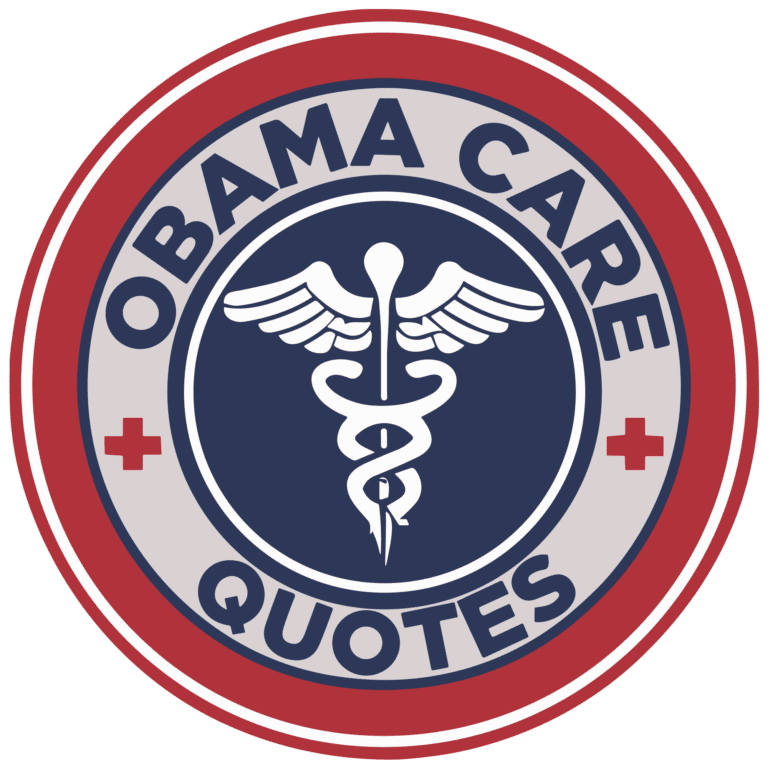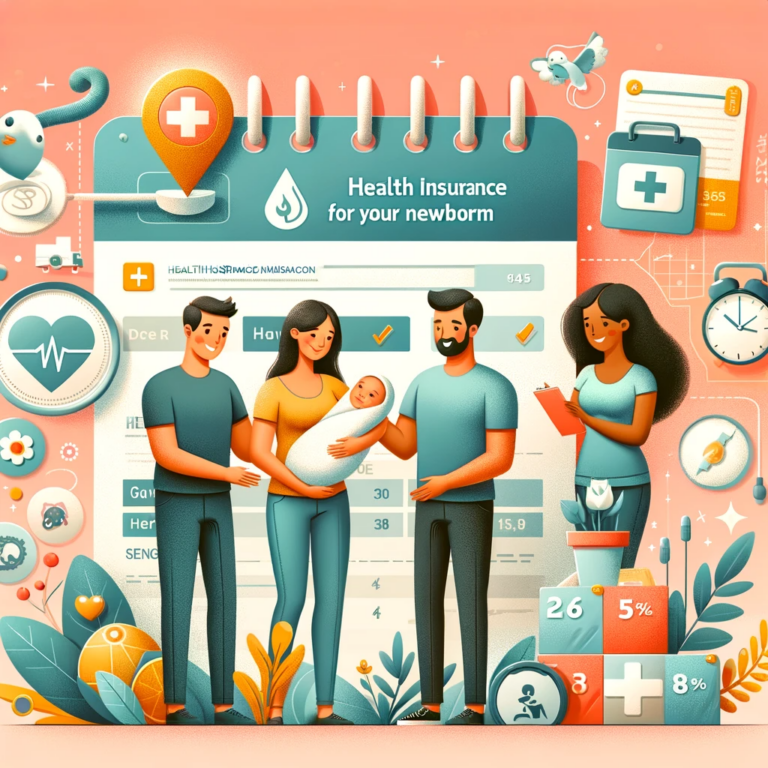Table of Contents
ToggleIntroduction
Having a baby is one of the most exciting times in life. However, it also brings many new expenses and responsibilities. One of the most important things new parents need to do is get health insurance for their new addition. Enrolling your newborn in health insurance is crucial for several reasons:
- Medical care for babies can be extremely expensive. Well-child visits, vaccinations, and any unexpected medical issues can quickly add up. Insurance helps cover these costs so you don’t face overwhelming medical bills.
- You likely can’t keep your baby on your existing insurance policy. Unless you already have a family plan, your insurance won’t automatically cover your newborn. So you’ll need to enroll them in their own plan.
- There are strict enrollment periods you need to be aware of. For most ACA marketplace plans, you only have 60 days from the date of birth to enroll your baby. Missing the window means waiting until the next Open Enrollment.
- Newborns can develop unexpected health conditions. Some may be pre-existing conditions that insurance would deny without ACA protections. Getting covered quickly ensures your baby can get treatment.
The bottom line? Enrolling in health insurance should be a top priority for new parents. The coverage can be vital for your baby’s health and wellbeing. Don’t delay – get your newborn insured as soon as possible.
High Medical Costs
Having a baby is an expensive endeavor in the United States. Just giving birth in a hospital can cost anywhere from $5,000 to $11,000 for an uncomplicated vaginal delivery, and $8,000 to $14,000 for a C-section, according to Fair Health. That’s not including any prenatal care or postpartum care costs.
And then there are all the medical expenses associated with your newborn. Well-baby visits, vaccinations, sick visits – it all adds up quickly. While babies are typically covered under their mother’s health insurance plan for the first 30 days of life, after that you’ll need your own plan to continue coverage. Without insurance, you’d be paying out of pocket for every doctor visit, test, and prescription.
No More Dependent Coverage
One of the biggest reasons new parents need to enroll in health insurance is that their dependent coverage likely ends when they turn 26. Prior to the Affordable Care Act, insurance companies could remove dependents from their parent’s health plans when they turned 19, or sometimes 22 if they were full-time students. Now, the ACA requires coverage until age 26, but after that cutoff, dependents can no longer remain on their parent’s plan.
So if you just had a baby but you’re over 26, you cannot rely on your parent’s insurance to cover your new child. And even if you’re under 26 now, you’ll eventually turn 26 and get kicked off. When this dependent coverage ends, you need to have your own comprehensive health plan lined up to avoid any gaps in coverage.
Losing dependent coverage can be a huge shock to new parents who assumed they could remain insured through their family. But once that coverage expires, new parents are fully responsible for securing their own plan. And this needs to happen right away to prevent the new baby from going uninsured. Enrolling in Obamacare as soon as possible ensures you have benefits secured before you lose dependent coverage.
The last thing any parent wants is to face sky-high medical bills without insurance. So as soon as you have a child, start researching the health insurance options in your state and enroll right away. Don’t wait until you lose dependent coverage. With healthcare.gov and insurance navigators, signing up for your own plan is easier than ever. But you need to act fast and lock in benefits. Otherwise, you may end up with devastating medical debt. Don’t let a gap in coverage derail your family’s financial security.
Open Enrollment Periods
The open enrollment period for 2023 health insurance coverage starts November 1, 2022 and ends January 15, 2023. This is the time frame each year that you can enroll in an insurance plan for the following calendar year.
Outside of this open enrollment window, your options for getting health insurance are limited. You usually need to have a qualifying life event to be granted a special enrollment period. Some examples of qualifying life events include:
- Losing health coverage from job or aging off parent’s plan
- Getting married
- Having a baby
- Moving to a new state
Without a special enrollment period, you may have to wait until the next open enrollment period to sign up. This could leave you uninsured for many months.
The open enrollment period gives you a chance to get insured for the full calendar year. Take advantage of it to gain comprehensive coverage. Shop the marketplace plans and choose one that fits your budget and healthcare needs.
Having a baby is considered a qualifying life event for special enrollment. But enrolling during open enrollment removes any question or hassle. You’ll be fully covered starting January 1st once open enrollment begins.
Pre-Existing Conditions
Having a baby can automatically qualify you for a Special Enrollment Period to sign up for health insurance, even outside of the standard Open Enrollment Period. This is crucial if your newborn has any pre-existing health conditions at birth that require medical treatment.
Under the Affordable Care Act, insurance companies are required to cover pre-existing conditions and cannot deny coverage or charge more for them. This includes conditions that are present at birth, so your newborn will be fully covered even if they have a pre-existing condition requiring care.
Some common conditions in newborns that insurance must cover include jaundice, respiratory problems, low birth weight, birth defects, and infections. You do not need to worry about being denied coverage or facing limits on care and treatment for any conditions your baby is born with. Enrolling your newborn in an ACA marketplace plan guarantees they will receive the medical care they need.
Tax Penalties
The Affordable Care Act (ACA) includes a tax penalty for individuals who do not have health insurance that meets the law’s requirements for minimum essential coverage. This is sometimes referred to as the “individual mandate.”
The goal of the tax penalty is to encourage healthy individuals to enroll in health coverage, which helps balance out the costs for sicker individuals. Without the penalty, some healthy people might opt to go without insurance until they get sick, driving up costs for everyone.
The tax penalty amount varies based on income and family size. For 2022, the annual penalty is the greater of:
- 2.5% of household income
- $429 per adult and $215 per child under 18 (capped at $2,571 per family)
Those thresholds increase each year with inflation. Some people may qualify for exemptions from the penalty if they meet criteria like having very low incomes, short coverage gaps, or qualifying hardships.
Going without health insurance and paying the tax penalty is almost always more expensive than getting an ACA plan. That’s why it’s so important to enroll during open enrollment or after major life events like having a baby or losing your job-based coverage. The tax penalties can really add up, so don’t wait to get insured.
Coverage Benefits
Having a new baby means lots of doctor’s appointments, vaccinations, and prescriptions. Health insurance helps cover these costs.
- Pediatrician Visits – Well-child visits are fully covered under the ACA. This includes routine checkups to monitor your baby’s growth and development.
- Vaccines – The ACA requires plans to cover immunizations recommended by the CDC’s Advisory Committee on Immunization Practices. This includes vaccines for chickenpox, polio, measles, and more.
- Prescriptions – Plans must cover prescription drugs for babies and children. This includes antibiotics, reflux medications, and any other medications prescribed by your pediatrician.
Getting health insurance means you won’t have to worry about paying 100% of these expenses out of pocket. You’ll have coverage for all the medical care your baby needs to stay healthy.
Financial Assistance Can Lower Costs
One of the biggest benefits of the Affordable Care Act (ACA) is the availability of financial assistance to help make health insurance more affordable. New parents may qualify for significant savings through premium tax credits and cost-sharing reductions.
The premium tax credit is available to individuals and families between 100-400% of the federal poverty level. This can lower your monthly premium payment significantly, sometimes by hundreds of dollars. The credit is paid directly to your insurance company and applied to your premium bill.
Cost-sharing reductions are additional savings available to those who qualify with incomes up to 250% of poverty. With a cost-sharing plan, you’ll pay less out-of-pocket costs for deductibles, copays, and coinsurance. This can save thousands per year on healthcare expenses.
To find out if you’re eligible and estimate your subsidy amount, visit the Health Insurance Marketplace website and use the cost savings estimator tool. Financial assistance is a huge benefit for new parents and can make health insurance much more affordable. Taking advantage of these savings is key to getting quality coverage you can actually afford.
Choose the Right Plan
When enrolling in health insurance through the Affordable Care Act marketplace, you’ll have several plan options to choose from. It’s important to select the right plan for your needs and budget. Here are some key factors to consider when comparing plans:
- Metal tiers – There are four metal tiers of plans: bronze, Silver, Gold, and Platinum. Bronze plans have the lowest premiums but the highest out-of-pocket costs. Platinum plans have the highest premiums but the lowest out-of-pocket costs. Evaluate the total expected costs for each plan.
- Deductibles – The deductible is the amount you pay out-of-pocket before insurance kicks in. Bronze and Silver plans tend to have higher deductibles. Make sure it’s an amount you can reasonably afford.
- Copays and coinsurance – These are the fees you pay for doctor visits, prescriptions, etc. Look closely at these costs for each plan. Plans with lower deductibles often have higher copays and coinsurance.
- Out-of-pocket maximum – This is the most you’d pay in a year for covered services. Opt for a maximum you can afford.
- Covered services – Make sure the plan covers all the medical services you need, such as doctor visits, prescriptions, maternity care, etc.
- Preferred providers – Check if your doctors are in-network for the plan. Going out-of-network costs more.
Choosing the right health insurance plan takes research and number crunching. Invest the time upfront to find the optimal balance of premiums, deductibles, and coverage that fits your healthcare needs and budget.
Enroll Now
Enrolling in health insurance through the health insurance marketplace is easy and can be done in just a few steps. Here’s how to get covered:
- Visit ObamaCareQuotes.com – This is the official health insurance marketplace website where you can view plans and enroll online. Simply go to ObamaCareQuotes.com and click on “Apply Today” to get started.
- Contact Obama Care Quotes: For assistance over the phone, you can contact Obama Care Quotes at 1-888-836-0035. Call center representatives can answer questions and walk you through the enrollment process.
- Work with an Agent or Broker: For personalized help, seek out an insurance agent or broker in your area. They can advise you on plan options and help enroll you in coverage.
- Enroll By the Deadline: To get coverage starting January 1st, you need to enroll by December 15. Open enrollment ends January 31, so don’t wait too long.
Signing up through the Marketplace ensures you can get financial assistance and find a plan that fits your needs and budget. Act now to avoid gaps in coverage.

